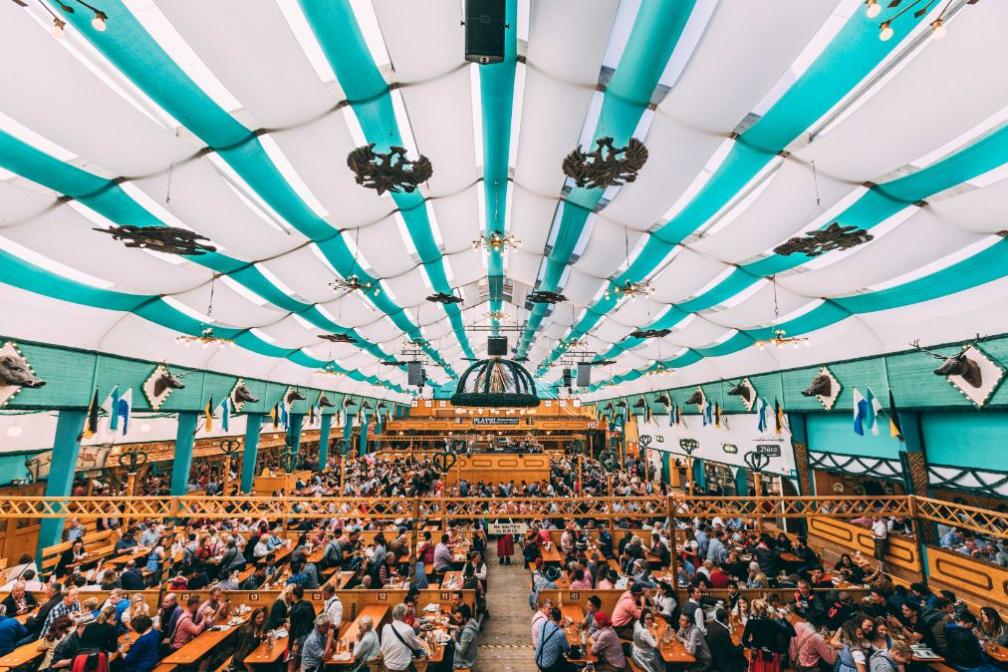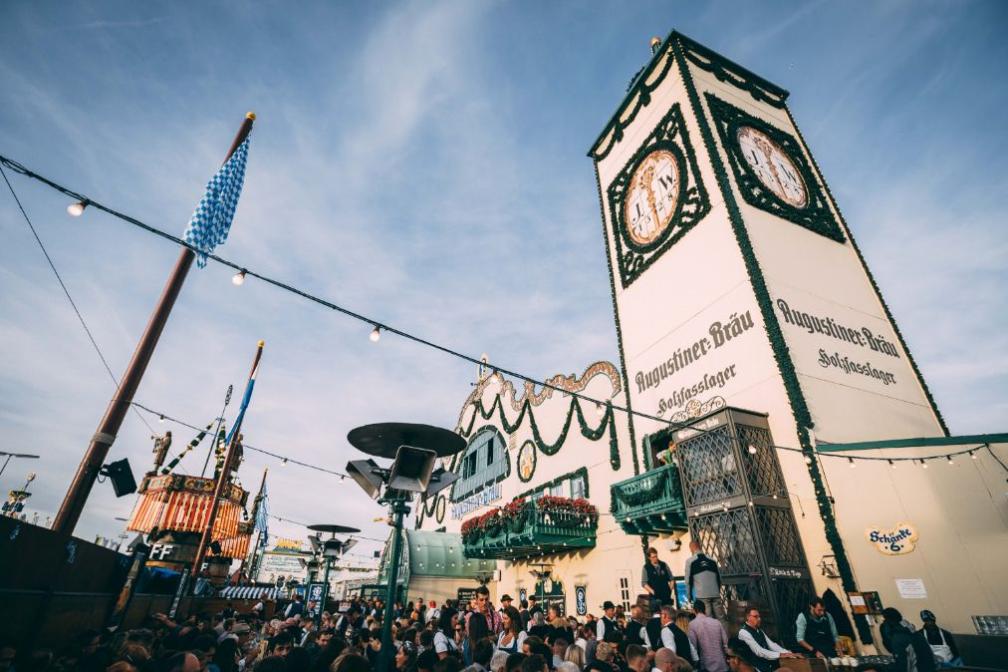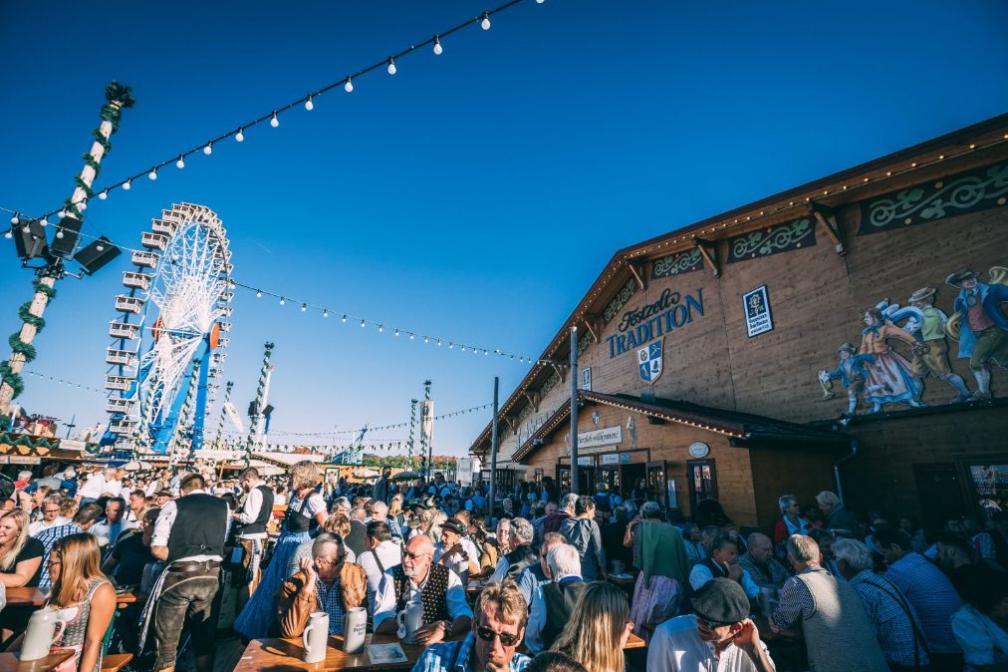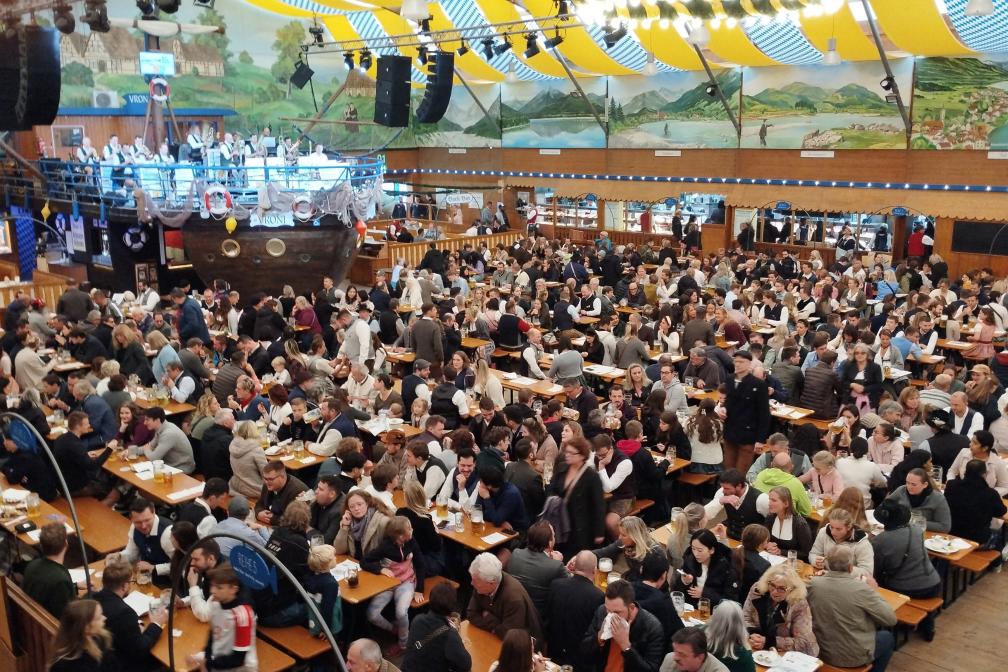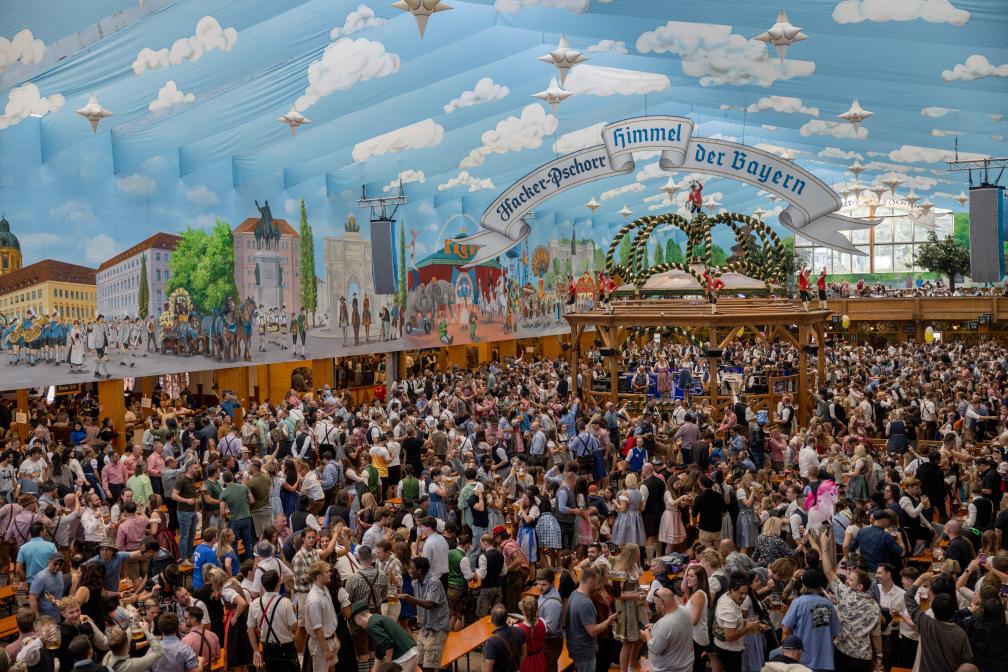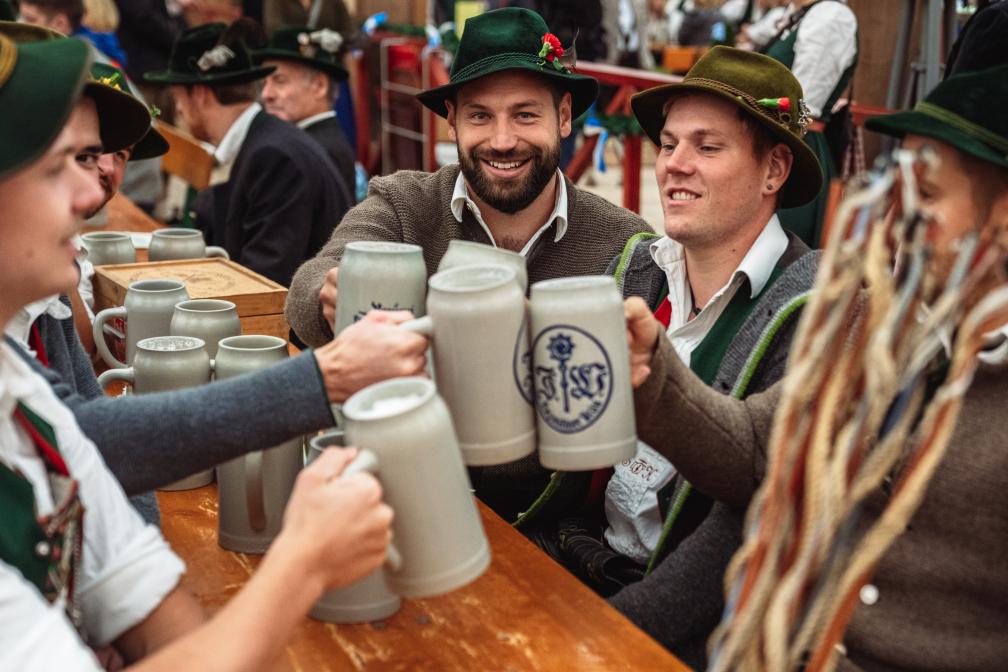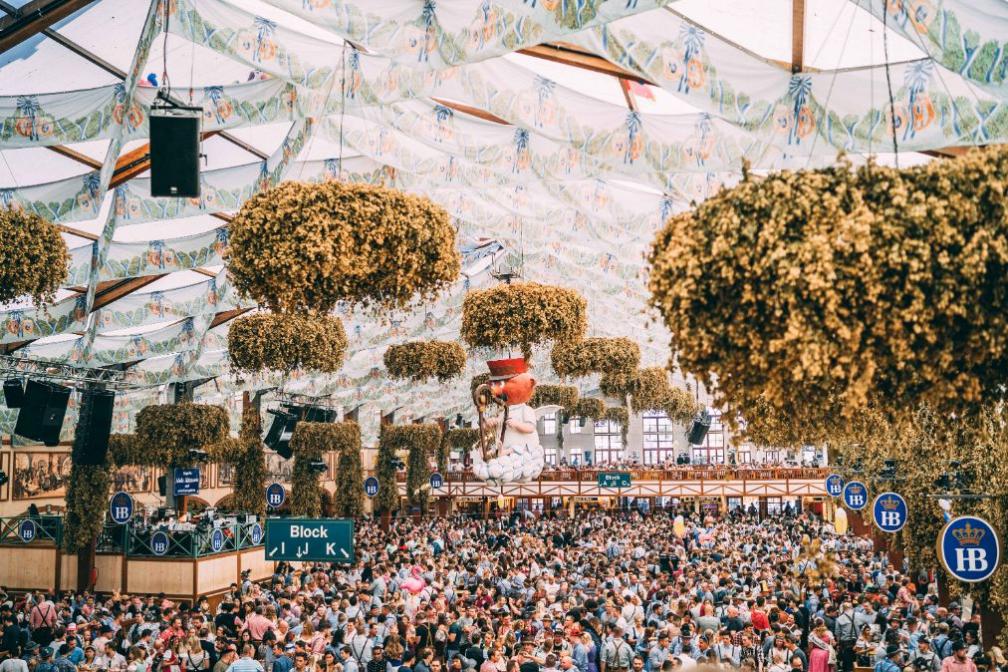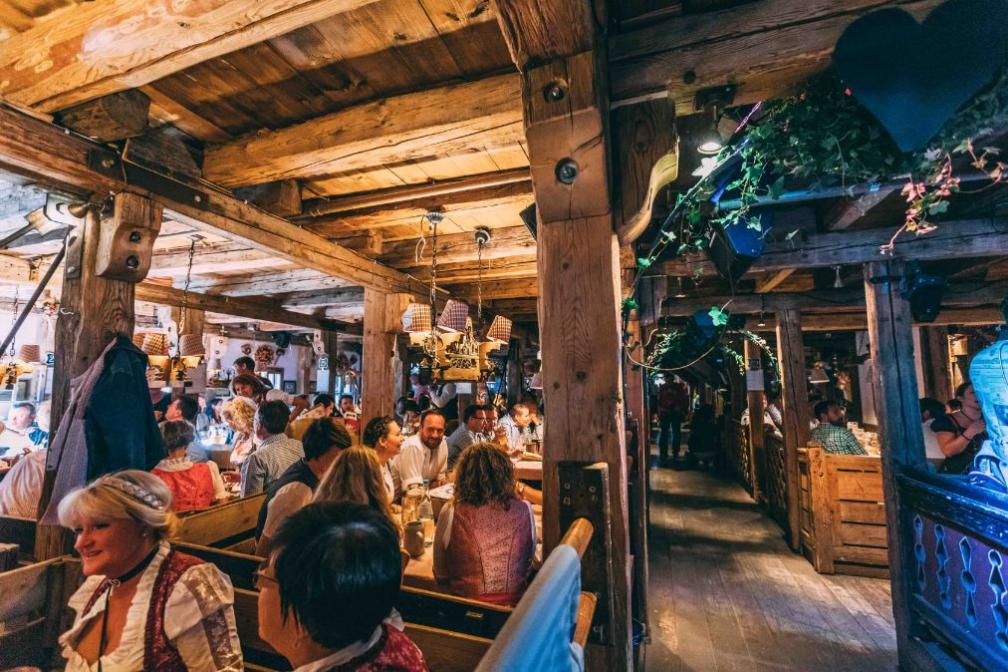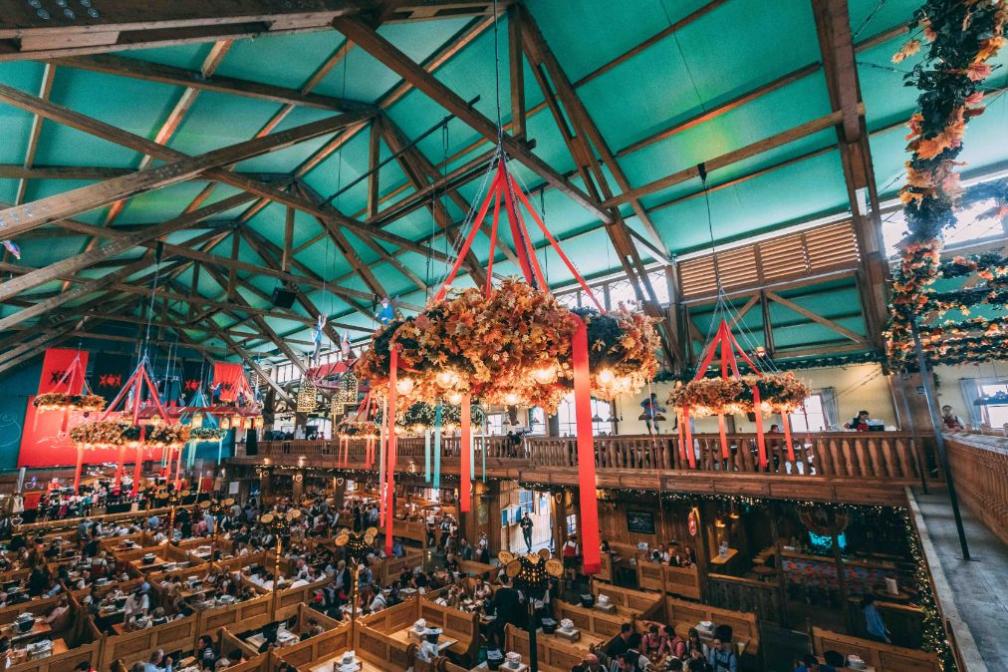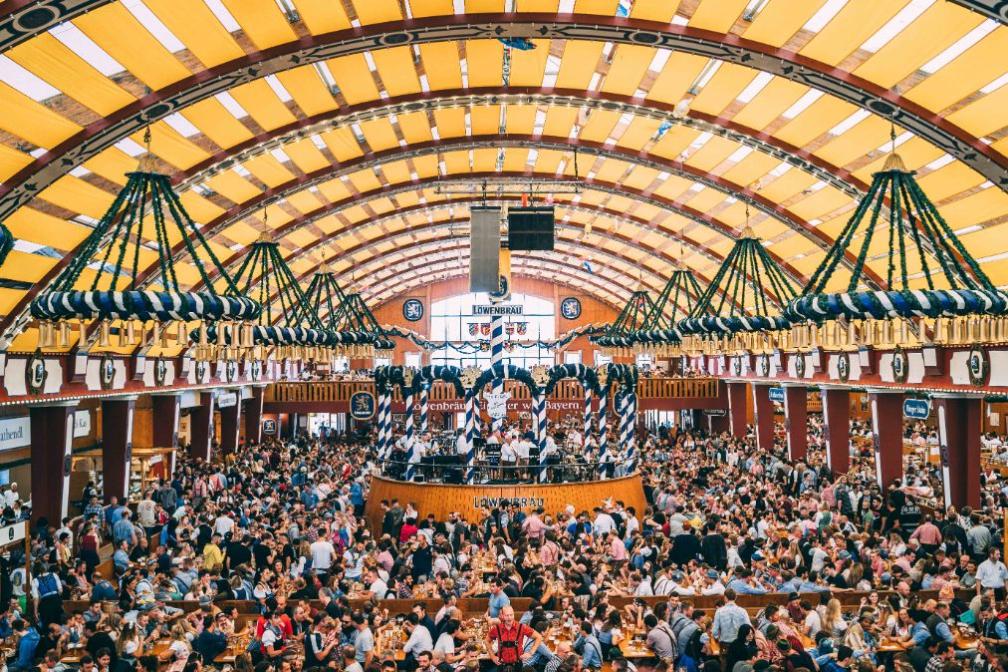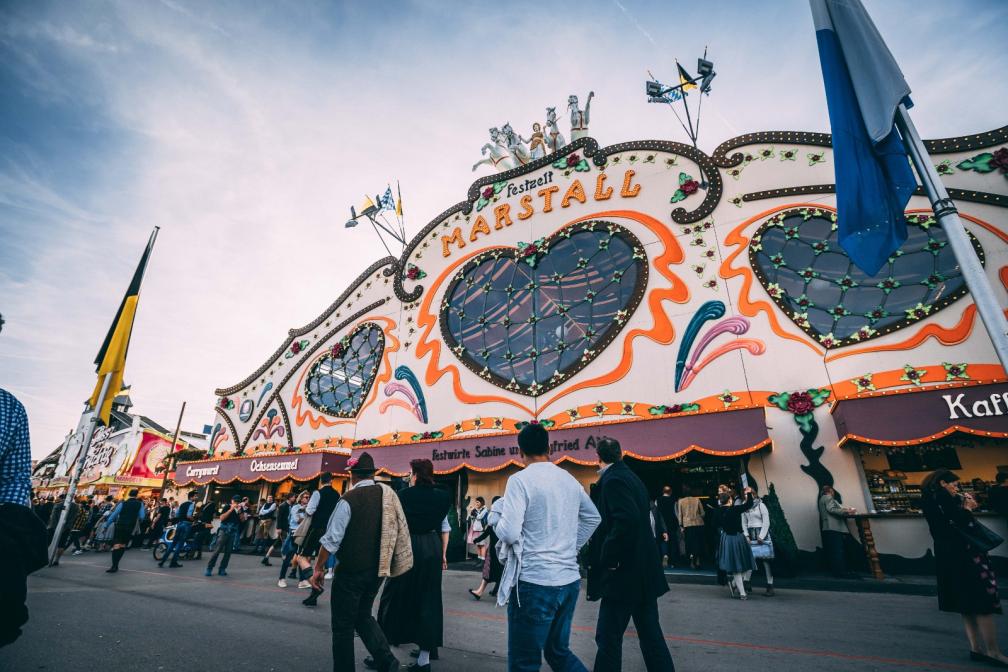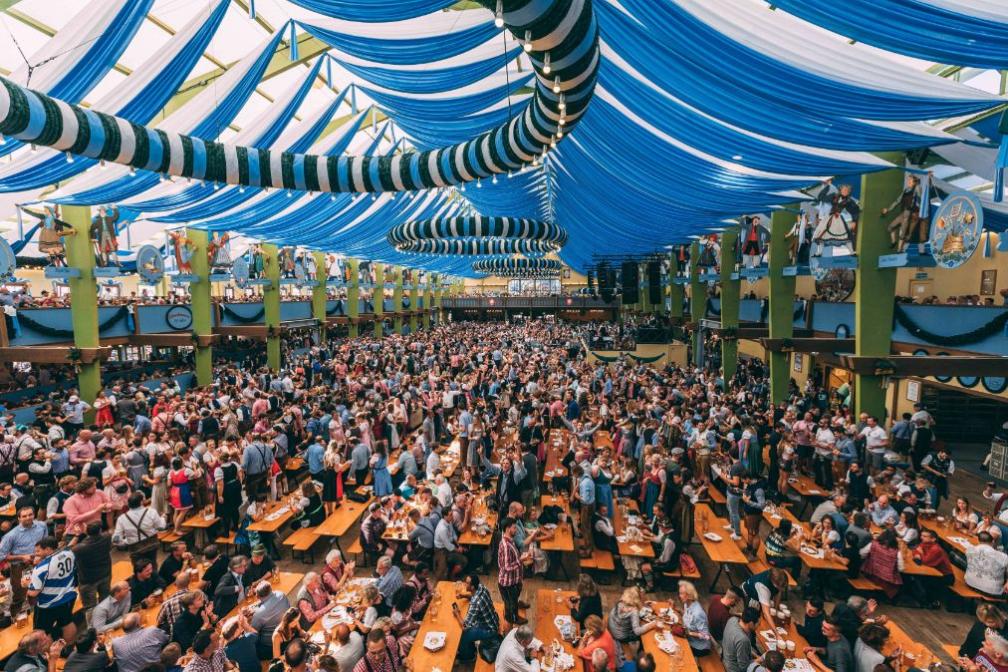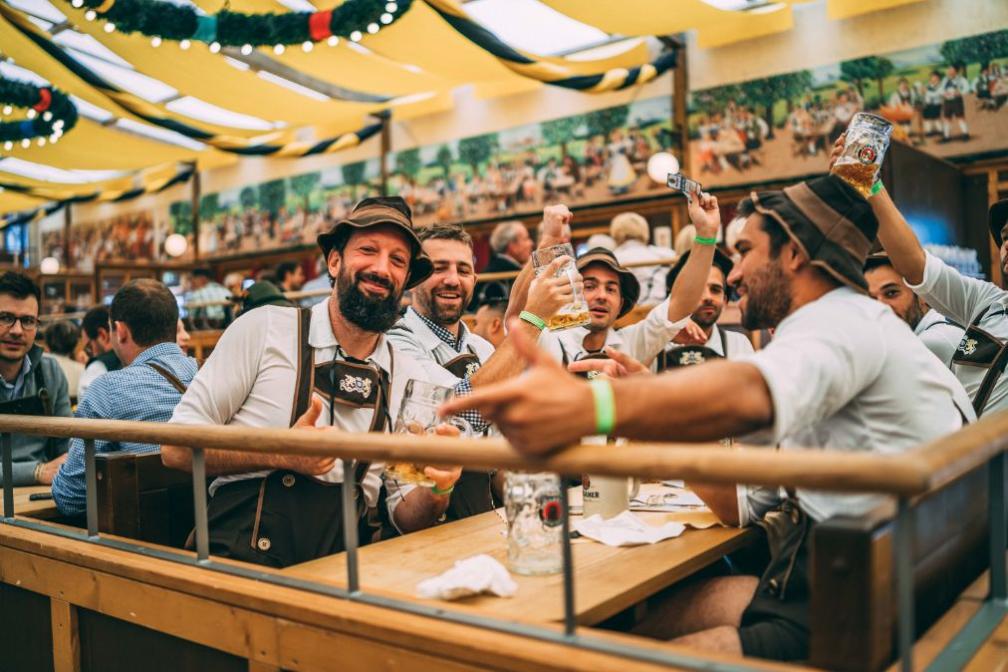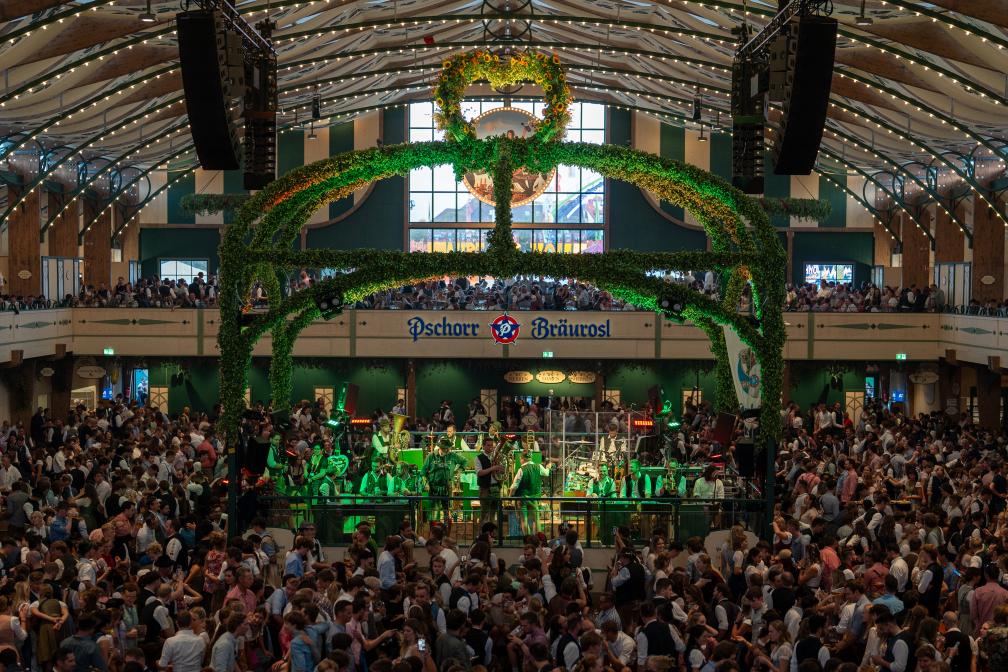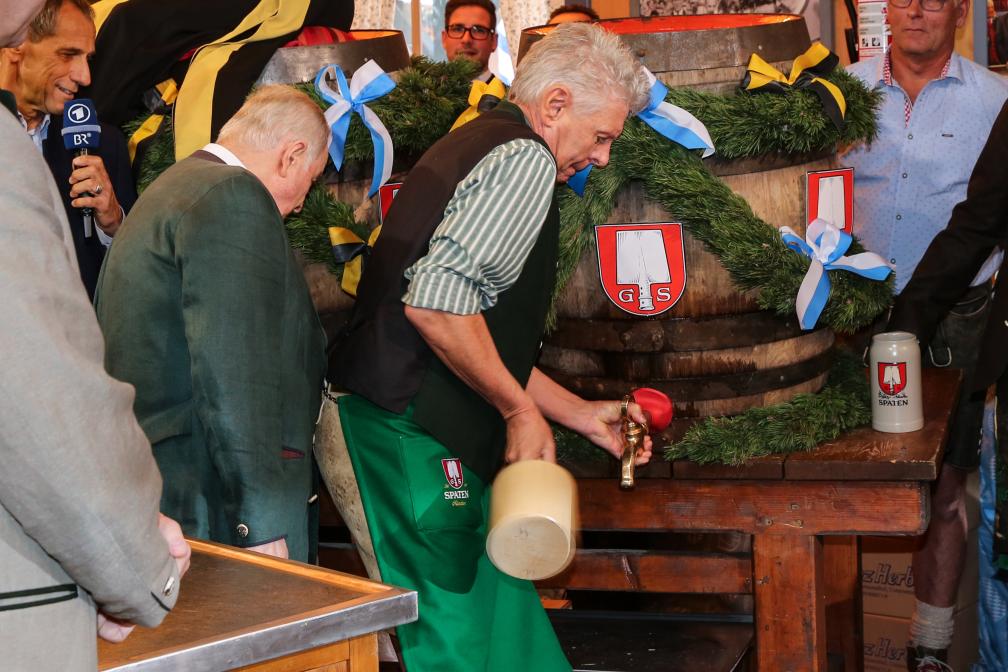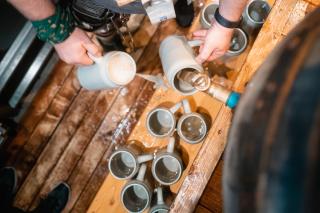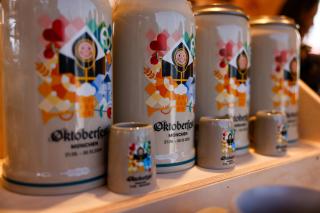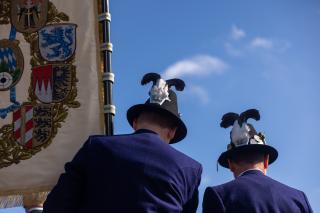Oktoberfest beer: Only from Munich breweries
Only beer from Munich breweries may be served at the Wiesn. Weeks before the Wiesn kicks off, the breweries present their new Wiesn beer brewed every year: Augustiner, Hacker-Pschorr, Hofbräu, Löwenbräu, Paulaner and Spaten. Only beer that comes from one of these Munich breweries and meets the specifications of the protected ‘Oktoberfestbier’ brand may be served at the Oktoberfest. According to a decision by the Munich Regional Court on 17 January 1990, this is officially considered the 'Fest des Münchner Bieres' (‘festival of Munich beer’).
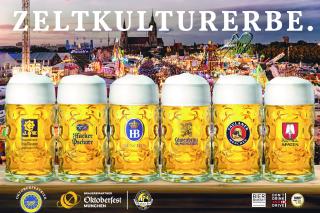
Augustiner-Bräu Munich: the oldest brewery in Munich
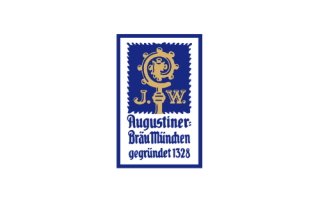
The monks of the Augustinian order founded a brewery in 1328, which still exists today and is the oldest still in existence within Munich's city limits.After privatization, Augustiner settled in Neuhauser Straße in 1817, where the Augustiner restaurant, popular with locals and tourists, is still located today. At the end of the 19th century, the headquarters and brewing facilities were relocated to Landsberger Straße, where brewing continues to this day. The Augustiner Hell in the bulbous 0.5-liter bottle with the equally bulbous monk on the label enjoys real cult status.
At the Oktoberfest, the 6.3 percent Augustiner Wiesnbier is available in the Augustiner Festzelt and in the Fischer Vroni, as well as in the Tradition tent, the Schützenlisl folk singers' tent and the new Boandlkramerei musicians' tent at the Oidn Wiesn. Augustiner is also served in two small festival tents: the Hühner- und Entenbraterei Ammer and the Zur Bratwurst festival tent. The brewery is the only one still using the traditional 200-liter wooden barrels, the so-called Hirschen, for storage.
Hacker-Pschorr: Reunited since 1972
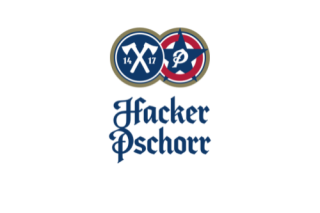
The brewery was first mentioned in a document in 1417 and was based in Sendlinger Straße, where the “Altes Hackerhaus” restaurant is today. In the 18th century, it developed into Munich's leading brewery under the couple Joseph Pschorr and Maria Theresia Hacker. Hacker and Pschorr were later run as separate breweries by their sons and have only been a joint brand again since 1972. Today, the brewery is located in the same premises as the Paulaner brewery. Since 2007, Hacker-Pschorr beer has once again been sold in the traditional bottles with swing top and “Plopp”.
At the Oktoberfest, the beer with 6.0% alcohol is available in the Hacker Festzelt and in the Bräurosl. Fisch Bäda, Heimer Enten- und Hühnerbraterei and Poschner's also serve Hacker-Pschorr. At the latter, the original amber-colored Wiesnmärzen from the wooden barrel is served in addition to the well-known pale Oktoberfest beer.
Hofbräu Munich: The beer from the world-famous Hofbräuhaus
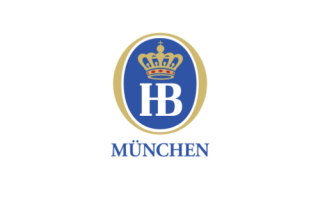
There is a Hofbräuhaus in Munich ... Hofbräu was founded in 1589 as a ducal brewery under Wilhelm V. Since 1939, the company has been run as a state-owned enterprise. The brewery was originally located in the heart of the city, where today the Hofbräuhaus am Platzl is one of Munich's main tourist attractions. In the 19th century, the brewery moved to Innere Wiener Straße due to a lack of space, where the Hofbräukeller with one of Munich's coziest beer gardens is still located today. Brewing has been taking place in Munich-Riem since the end of the 1980s. At 6.3% Hofbräu is one of the strongest of the Wiesn beers and is served in the Hofbräu Festzelt.
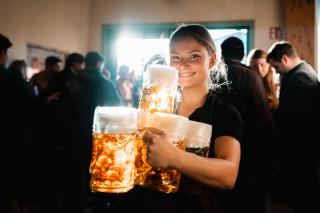
Paulaner Brauerei Munich: It began with Brother Barnabas

In 1634, the monks of the Paulaner Order served their first own beer, making Paulaner the youngest of the breweries serving beer at the Oktoberfest. At first, Paulaner beer was only served to the public on festive days, otherwise it was reserved for the monks. However, the bock beer based on a recipe by Brother Barnabas quickly became extremely popular among all Munich beer drinkers. For a long time, the brewery was headquartered on the Giesinger Nockherberg, where the annual strong beer festival with the famous politician derblecken (fooling around) takes place. Today, the brewing facilities are located in Munich-Langwied.
Paulaner's Oktoberfest beer has 6% alcohol and is served in the Paulaner Festzelt, the Armbrustschützenzelt, the Käferzelt, Kuffler's Weinzelt (as wheat beer until 9 pm), the Heinz Wurst- und Hühnerbraterei, the Metzger Stubn, the Münchner Knödelei and the Münchner Stubn tent.
Löwenbräu München: Beer from the Nymphenburger Straße
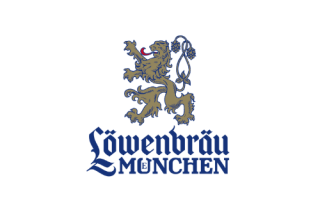
The brewery probably dates back to the late 14th century, but the name Löwenbräu first appeared in Munich's beer brewing directory in 1746.In the 19th century, the medium-sized brewery developed into Munich's largest brewery under the Brey family and, due to its strong growth, moved to Nymphenburger Straße, where it is still located today. The Löwenbräukeller with its beer garden is famous for its spectacular events such as strong beer festivals or the Night of Traditional Costume.
The Spaten-Franziskaner-Löwenbräu Group has been part of the international brewing group InBev since 2003.
The brand logo is of course a lion, which incidentally looks very similar to the Bavarian heraldic animal. Every festival visitor is also familiar with the giant lion in front of the Löwenbräu festival tent, roaring “Löööö-weeeen-brääääu” and calling out to the thirsty while drinking beer. The Löwenbräu Wiesntrunk with 6.1% alcohol is also available in the Schützen Festzelt and in the small Haxnbraterei.
Spatenbräu: inventor of the “Münchner Hell”
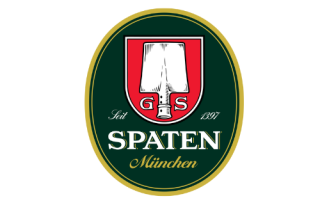
The Spatenbrauerei was founded in 1397 and was located in Neuhauser Gasse for the first few centuries. In the 19th century, the brewery moved to Marsstraße, where at least the administration is still based today. Spaten has the honor of being the first brewery to launch “Münchner Hell” on the market in 1894 - a real bestseller to this day. Since 2003, the Spaten-Franziskaner-Löwenbräu Group has belonged to Interbrew, now InBev.
Spaten and Franziskaner beer is available at the Oktoberfest in the Festhalle Schottenhamel, where the tapping is celebrated by the Lord Mayor of Munich every year. There is also Spatenbier in the Marstall, the Ochsenbraterei, the Glöckle Wirt, the Goldener Hahn, the Kalbsbraterei, the Wildstuben and the Wirtshaus im Schichtl; you can drink Franziskaner wheat beer in Feisinger's Kas- und Weinstubn. The Wiesnbier has 5.9% alcohol.
With letter and seal from the EU
Since 2022, Oktoberfest beer is holding the European Union’s “Protected Geographical Indication” seal of origin. This guarantees, that Oktoberfest beer is brewed exclusively in Munich according to its specification and is the beer that will be served at the Munich Oktoberfest. This confirms and protects across the EU what the Munich Breweries Association has always been committed to: Oktoberfest beer is the result of a unique interplay of local brewing and festival culture that can only exist in Munich. Wherever you enjoy your Oktoberfest beer – you can be sure that it is the original from the Oktoberfest.
Beer culture in Munich
Munich beer is cult and traditionally plays a major role in Munich. Beer has been an integral part of Munich life since the city was founded. Especially in summer, there is nothing better than meeting up in Munich's beer gardens and rounding off the evening with a beer and a snack. But that's not the only thing that characterises Munich's beer culture. Discover Munich's traditional and craft beer breweries, the Beer and Oktoberfest Museum and experience exciting brewery tours and beer tastings. Munich Tourism has everything you need to know about beer culture in Munich

